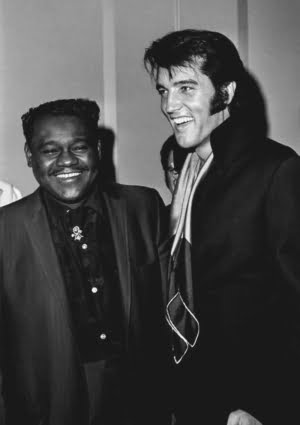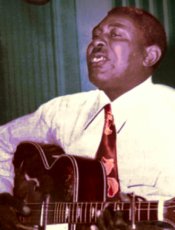Estimated reading time is 7 minutes.
ALWAYS CHECK YOUR SOURCE’S SOURCES! If you are not hip to the fact that billions of “facts” circulating on the internet aren’t remotely factual—even when found on oft-quoted websites or from well-known authors—then consider this your wake-up call. Many writers don’t know enough about their topics to know when a source is unreliable.
And by unreliable I am not referring just to “fake news” or the many purveyors of disinformation, such as the countless nabobs nattering away on the comments section of news sites or bloggers drudging up disinformation on their blogs. I am instead referring to misinformation, which is usually based on a lack of knowledge concerning the topic that someone is writing about.
Many writers on the internet don’t know enough about their topics to know when a source they are using is unreliable!
This can be found on any and all types of websites. On my Rather Rare Records blog, I have posted several articles taking to task the laughably incorrect “information” about popular music on Wikipedia. And as Wikipedia becomes the first option for information for more and more internet researchers, this misinformation concerning popular music is endlessly recirculated.
So, when using any website as a source of information, please check their sources of information. But the reliability of each writer’s quoted sources depends upon the level of knowledge that each writer brings to their search for reliable sources. 1
Keep in mind, that I am speaking about facts, not opinions. For example, here are two opinions of mine:
• Hound Dog / Don’t Be Cruel is the greatest single of all time.
• G. I. BLUES is the most disappointing album of all time.
If you want to cite either of these in an article or argument of your own, go for it! You do not need to fact-check any sources (although mentioning my background would make your citing of those opinions carry a little more weight).
This article is a follow-up to the article, “Arthur Crudup Might Just Be Forgotten If Not For Elvis.” To read that article, click here.
I don’t know when this photo of Arthur Crudup was taken a few years prior to his death in 1974.
The report
In the article “Arthur Crudup Might Have Been Forgotten If Not For Elvis” that I just published here on A Touch Of Gold, I addressed the recently published interim report by California’s Task Force to Study and Develop Reparation Proposals for African Americans.
I took to task the authors of that report for several statements about the music business in general and specific statements about Arthur Crudup and Elvis Presley. I quoted three sentences that appeared consecutively in one paragraph:
“During the 1920s and 1930s, Black musicians were subjected to contracts where the copyright for their work would be assigned to their employer, while being paid less than white musicians who had similar contracts.
For example, Elvis Presley imitated Black blues and R&B singers, and due to these exploitative contracts, the original song creators whose work he appropriated were not even paid for the use of their music.
One of Elvis’ hit songs, That’s All Right Mama (sic), was originally written and recorded by Arthur Crudup, a Black man who was paid so little for his recordings that he had to work as a laborer selling sweet potatoes.”
I separated the three sentences and turned them into three paragraphs above for ease of reading. The content of these sentences is discussed in the aforementioned article. Here, I want to call attention to the second sentence, which has a footnote following it on the task force report.
Fats Domino (left) and Elvis Presley (right) at the press conference held at the International Hotel in Las Vegas on July 31, 1969.
The report’s source
The task force’s footnote leads the reader to page 485 of “Black Musical Traditions and Copyright Law: Historical Tensions,” an abstract by Candace Hines published in The Michigan Journal of Race & Law. This is what Ms. Hines wrote:
“Elvis Presley, an admitted imitator of Black blues and R&B singers [emphasis added], is a prime example of the prevalence of this practice [of. In many cases, a work-for-hire contract existed, so the Black artist of the original song not only did not own the copyright but was not even paid for the use of the original musical work.
One of Elvis’ hit records, That’s All Right Mama [sic], was actually originally written and recorded by bluesman Arthur ‘Big Boy’ Crudup, who was paid so little for his recordings that he balanced his work as a rural laborer—sometimes selling sweet potatoes—with his recording sessions throughout his career.”
It appears that the task force authors imitated—excuse me, I mean they adapted—several of Ms. Hines’ conclusions and published them as their own in their report. But Hines’ words that Elvis was an “admitted imitator” imply that somewhere Elvis had admitted to someone that he had, in fact, imitated artists who had preceded him.
Apparently, Hines and the task force took this as gospel: of course, Elvis must have admitted that he imitated other artists. Ergo, there’s no need to look it up. But I never read anywhere that Presley said he considered himself to be an imitator or copycat.
Nor could several knowledgeable fans that I asked remember having heard such an admission from Elvis.
Nor could I find an online source where he admitted such a thing.
He certainly acknowledged being influenced by Black artists and often said they did what he did better than he did. For example, on July 31, 1969, Elvis held a press conference at the International Hotel, Las Vegas. Fats Domino had just finished a four-week stay at the Flamingo Hotel and was also at the press conference. When Elvis was asked how it felt to be the king of rock & roll, he pointed to Domino and said, “No—that’s the real king of rock & roll.”
Make of that what you will.
This is the front cover to Kandia Crazy Horse’s Rip It Up: The Black Experience In Rock N Roll.
The report’s source’s source
In Hines’ abstract, the sentence with the “admitted imitator” statement is footnoted. That footnote leads to entries 160-161 in Rip It Up: The Black Experience In Rock N Roll, a book of articles and interviews assembled and edited by
“Racist attitudes continue to hamper intelligent dialogue about rock’s origins and black artists getting their due. While Presley [has] long acknowledged [his] debt to rock’s black pioneers and visionaries, the music industry and mainstream media are unwavering in making them ride the back of the bus—as if everything Presley did manifested fortuitously.” 2
So, Hines apparently based her insulting term “admitted imitator” on Ms. Crazy Horse’s “long acknowledged [his] debt to rock’s black pioneers and visionaries.” Crazy Horse’s statement is not even in the same ballpark as Hines’ “admitted imitator”! Presley has acknowledged the earlier music of Black artists since the beginning of his career. In fact, he has made clear the debt he owes them several times during his career! 3
So, if I am reading all this accurately, the task force authors chose to call Elvis an “imitator” while referencing a source that called him an also called him an imitator but which referenced a source that said nothing of the sort.
That’s a hell of a transformation!
Make of this what you will.
Many writers on the internet don’t know enough about their topics to know when a source they are using is unreliable! Click To Tweet
FEATURED IMAGE: The photo at the top of this page is of Arthur Crudup, probably in an RCA studio, probably in the late ’40s. This photo has been used on several albums, including the ARTHUR “BIG BOY” CRUDUP ROCKS compact disc collection from Bear Family.
POSTSCRIPTUALLY: Just as I was putting this article to bed, the article “Google Realizes It Needs to Do More to Fight Misinformation in Searches” appeared in my email. I am surprised and heartened to read the following:
“Google said they’re launching more ways to verify information found on sites. Nayak announced they were including an ‘About this source’ feature on any page in the Google app. It can be accessed by swiping up on the navigation bar, showing more information found online about the website from various sources. It certainly seems like a very handy tool for those looking to verify a page’s information without having to open another tab.”
Thanks again to Joe Spera for proofreading this piece and making some valuable suggestions.
Finally—and needless to say—I have eliminated the California Task Force to Study and Develop Reparation Proposals for African Americans as a possible source for any future research.
____________
FOOTNOTES
1 Many sites use hyperlinks to their sources, which are easily checked. Some sites use footnotes, but even these are usually hyperlinked to the source.
2 Here is Crazy Horse’s full paragraph: “Racist attitudes continue to hamper intelligent dialogue about rock’s origins and black artists getting their due. While Presley, Haley, Carl Perkins, Jerry Lee Lewis, the Beatles, the Rolling Stones, Janis Joplin, and others have long acknowledged their debt to rock’s black pioneers and visionaries, the music industry and mainstream media are unwavering in making them ride the back of the bus—as if everything Presley, Haley, Perkins, Lewis, et al. did manifested fortuitously.”
3 When quoting text from another source, I left “black” and “Black” as they appeared in the original text.
Mystically liberal Virgo enjoys long walks alone in the city at night in the rain with an umbrella and a flask of 10-year-old Laphroaig who strives to live by the maxim, “It ain’t what you know that gets you into trouble; it’s what you know that just ain’t so.
I’ve been a puppet, a pauper, a pirate, a poet, a pawn, and a college dropout (twice!). Occupationally, I have been a bartender, jewelry engraver, bouncer, landscape artist, and FEMA crew chief following the Great Flood of ’72 (and that was a job that I should never, ever have left).
I am also the final author of the original O’Sullivan Woodside price guides for record collectors and the original author of the Goldmine price guides for record collectors. As such, I was often referred to as the Price Guide Guru, and—as everyone should know—it behooves one to heed the words of a guru. (Unless, of course, you’re the Beatles.)










